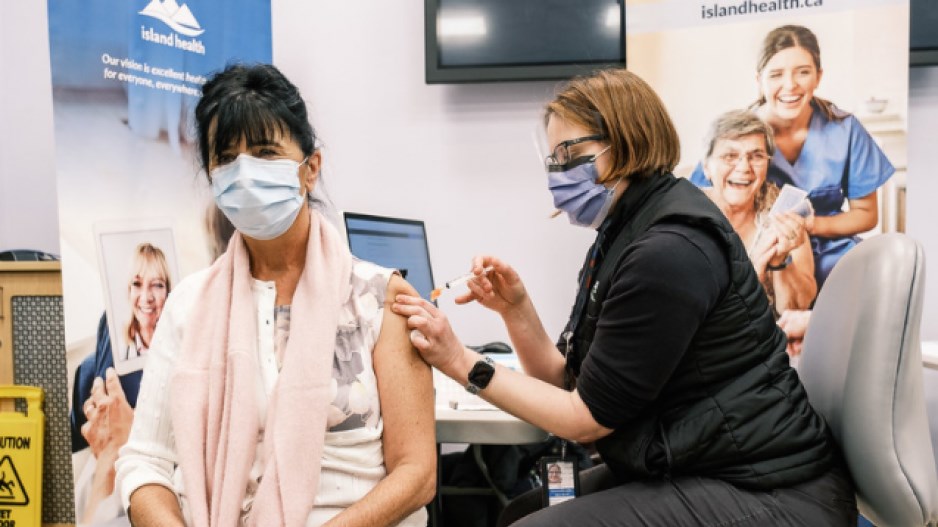B.C. officials plan to vaccinate 70,000 residents and staff at long-term care facilities by the end of January — nearly half of all British Columbians who are expected to receive their first dose against COVID-19 by month’s end.
“Those are the people we know need our protection most,” B.C. provincial health officer Dr. Bonnie Henry said during a Monday (January 4) briefing in Victoria.
Henry also revealed that the province intends to vaccinate 30,000 frontline health-care workers — specifically, paramedics, and those who work in intensive care units and emergency departments at hospitals — by the end of the month.
Another 13,000 people in assisted living are expected to receive at least their first dose in January.
Both the Moderna Inc. (NYSE:MRNA) vaccine and Pfizer Inc. (NYSE:PFE)-BioNTech SE (Nasdaq:BNTX) vaccine require two doses.
Henry also reiterated the province was committed to delivering vaccines to residents in remote and isolated First Nations communities this month.
The numbers provided by the B.C. provincial health officer were the most detailed offered since manufacturers and couriers began delivering the Moderna and Pfizer-BioNTech vaccines to the province last month.
So far, 24,139 people have been vaccinated on the West Coast.
That’s up from the 17,510 who received their first dose as of December 31, the last time Henry and B.C. Health Minister Adrian Dix provided data.
A total of 54,625 doses have been delivered to B.C. to date — 34,125 from Pfizer and the remaining 20,000 from Moderna.
But of the inoculations administered so far, just 1,449 came from Moderna.
“So it has been a slower rollover than we were hoping, but we will be using up the additional doses over the coming week,” Henry said, adding that Pfizer deliveries are coming in on a weekly basis while the Moderna deliveries are expected every two to three weeks.
The next Moderna shipment is not expected on the West Coast until the third week of January, while an additional 16,575 Pfizer doses are expected this week.
B.C. does not have any guaranteed shipments set for February but Henry emphasized that those will be pinned down shortly.
After the top-priority groups receive their vaccines in January, health officials plan to administer vaccines to elderly British Columbians above the age of 80.
Once vaccinated, the province will administer the doses in descending five-year age brackets.
The province expects to have 792,000 doses delivered by the end of March.
Of those, 542,000 will come from Pfizer and 250,000 from Moderna.
Because the Moderna doses are easier to transport than the competing Pfizer vaccine, it’s seen as critical in ensuring remote regions in B.C. and Canada have access to vaccinations.
Unlike the Pfizer vaccine, which must be maintained at temperatures as low as -80C, the Moderna needs to be maintained at just -20C.
Delivery of the Pfizer vaccine is currently the responsibility of the manufacturer due to the vaccine’s sensitivity, while FedEx Express Canada Corp. and Innomar Strategies Inc. are handling Moderna’s deliveries.
“These are not the usually fridge-stable vaccines we are used to handling. They are very delicate,” Henry said, adding she’s optimistic that more vaccines will be approved in the coming weeks and months.
On Monday, the U.K. became the first country to begin administering the AstraZeneca plc vaccine.
The vaccine, which has not yet been approved in Canada, does not require the same low levels of cooling as the Pfizer-BioNTech or Moderna vaccines.




